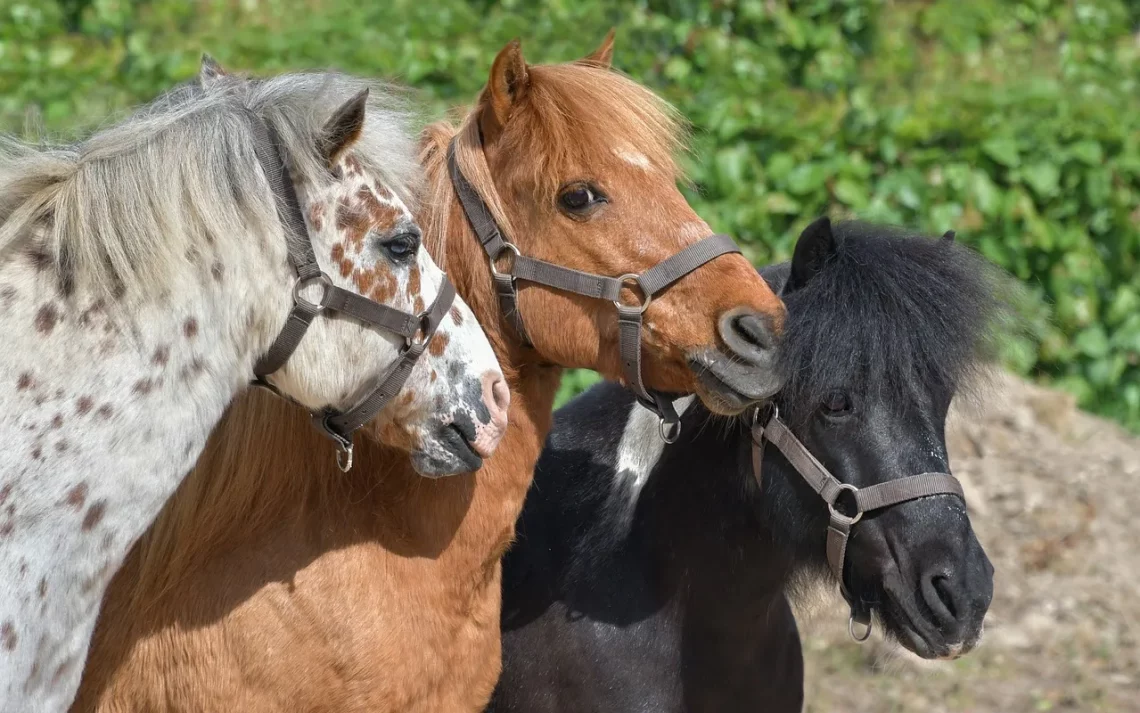
Understanding Pony Lifespan: How Long Do Ponies Live?
Understanding the lifespan of ponies is an essential topic for anyone interested in equine care and ownership. Ponies, known for their small stature and gentle demeanor, are beloved companions for many. These charming animals have a unique place in equestrian culture, often being the first choice for young riders and families. However, like all living creatures, ponies have a finite lifespan influenced by various factors. Understanding these factors can help owners provide better care and ensure a longer, healthier life for their ponies.
Ponies are not just smaller horses; they have distinct characteristics and needs that must be met to promote longevity. The bond between a pony and its owner can be incredibly rewarding, but it also comes with responsibilities. From diet and exercise to medical care and living conditions, each element plays a crucial role in determining how long these animals live. In this exploration of pony lifespan, we will delve into the various aspects that contribute to their longevity and overall health. Let’s embark on this journey to better understand these fascinating creatures.
Factors Influencing Pony Lifespan
The lifespan of a pony can be influenced by a myriad of factors, each playing a vital role in determining how long these animals can live. One of the most significant factors is genetics. Just like in humans, the genetic makeup of a pony can predispose it to certain health conditions or enhance its resilience against diseases. Responsible breeders often focus on selecting ponies with strong genetic backgrounds to improve the overall health of their offspring.
Another important aspect is nutrition. A balanced diet tailored to the specific needs of a pony can greatly impact its lifespan. Ponies are prone to obesity, which can lead to a variety of health issues such as laminitis and diabetes. Owners should ensure that their ponies receive a diet rich in essential nutrients, including vitamins and minerals, while being mindful of caloric intake. High-quality forage, grains, and supplements should be provided based on the pony’s age, activity level, and health status.
Regular veterinary care is also crucial for maintaining a pony’s health. Routine check-ups, vaccinations, and dental care can help prevent potential health issues. Early detection of problems can lead to more effective treatments and a longer life for the pony. Additionally, maintaining proper hoof care by a qualified farrier is essential, as neglected hooves can lead to serious complications.
Environmental factors cannot be overlooked either. Ponies need a safe, clean, and comfortable living environment to thrive. Access to adequate shelter, fresh water, and safe grazing areas contributes significantly to their overall well-being. Stressful living conditions can adversely affect a pony’s health, leading to a shorter lifespan.
Common Health Issues in Ponies
Ponies, like all animals, are susceptible to various health issues that can affect their longevity. Understanding these common conditions is vital for owners looking to provide the best care for their equine companions. One prevalent issue is laminitis, an inflammatory condition affecting the hoof. This painful condition can be triggered by factors such as obesity, poor nutrition, or hormonal imbalances. If not managed properly, laminitis can lead to severe complications and significantly shorten a pony’s lifespan.
Another common health concern is equine metabolic syndrome (EMS), which is closely associated with obesity. EMS can lead to insulin resistance, putting ponies at risk for laminitis and other metabolic disorders. Owners should be vigilant about their pony’s weight and implement a controlled feeding regimen to prevent this condition.
Dental problems are also frequent among ponies, particularly as they age. Regular dental check-ups are essential to ensure that the pony’s teeth are in good condition, as issues such as sharp edges or missing teeth can lead to difficulties in eating and subsequent health complications.
Additionally, respiratory issues can arise, particularly in ponies kept in poorly ventilated stables or those exposed to dust and mold. Owners should ensure that their ponies have access to clean air and are kept in environments that promote respiratory health.
Preventative measures, such as vaccinations against common diseases and regular health screenings, can help mitigate these issues. Staying informed about potential health risks and knowing the signs of illness can empower owners to act swiftly, ultimately contributing to a longer lifespan for their ponies.
Promoting Longevity Through Proper Care
To promote a longer lifespan in ponies, owners must prioritize proper care and management practices. This encompasses not only nutrition and health monitoring but also regular exercise and mental stimulation. Ponies are intelligent creatures that thrive on interaction and engagement. Providing them with opportunities to socialize with other ponies or engage in activities can enhance their mental and emotional well-being, which, in turn, can positively affect their physical health.
Establishing a consistent routine is beneficial for ponies. Regular feeding times, exercise schedules, and grooming sessions help ponies feel secure and content. This routine can reduce stress, an often-overlooked factor that can negatively impact health.
Furthermore, ensuring that ponies have access to proper veterinary care is essential for identifying and addressing health issues early on. Owners should keep detailed records of their pony’s health history, including vaccinations, medications, and any treatments received. This information can be invaluable during veterinary visits.
Additionally, providing a safe and stimulating environment is crucial. Ponies should have access to clean, spacious living quarters and safe pasture areas for grazing. Regularly checking fencing and ensuring that the environment is free of hazards can prevent injuries and accidents.
Lastly, educating oneself about the specific needs of the pony breed can greatly enhance care. Different breeds may have unique requirements regarding diet, exercise, and health management. By tailoring care to the individual pony, owners can create a supportive environment that promotes health and longevity.
The Importance of Regular Veterinary Visits
Regular veterinary visits are paramount in ensuring that ponies live long, healthy lives. These check-ups allow for early detection of potential health issues, vaccinations, dental care, and overall health assessments. A veterinarian can provide valuable insights into the specific needs of each pony, helping owners to establish a tailored care plan.
During these visits, veterinarians can perform thorough physical examinations, checking for signs of illness or discomfort. They can also provide vaccinations against common diseases, which is crucial for preventing outbreaks in a stable or community setting. Vaccination schedules should be strictly adhered to, as they form the first line of defense against many preventable diseases.
Dental health is another critical aspect that veterinarians can address. Regular dental examinations can prevent issues such as tooth decay or malocclusion, which can lead to pain and difficulty eating. A veterinarian can recommend a dental care schedule to maintain optimal oral health.
Moreover, veterinarians can advise on nutrition and weight management, which is essential for preventing obesity-related conditions. They can assess the pony’s body condition score and recommend dietary adjustments to ensure the pony remains at a healthy weight.
Overall, establishing a good relationship with a veterinarian is essential for long-term pony care. Owners should not hesitate to seek veterinary advice when they notice changes in behavior, appetite, or overall health. Being proactive in veterinary care can significantly enhance a pony’s quality of life and longevity.
In conclusion, understanding the lifespan of ponies involves recognizing the various factors that influence their health and well-being. By providing proper care, nutrition, and regular veterinary visits, owners can greatly enhance their pony’s quality of life and longevity.
*Disclaimer: This article is not intended as medical advice. For any health-related concerns regarding your pony, please consult a qualified veterinarian.*




